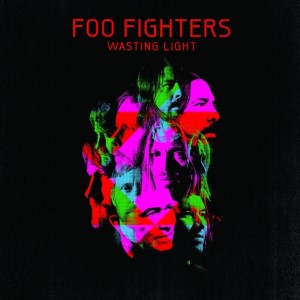"I get to [Dave Grohl's] house and the
first thing he says is, 'I really wanna do this in my garage.' So we
went downstairs and set up a snare drum. I said, 'Well, it sounds really
loud and trashy, but I don't see why we can't do it.' Then he said he
wanted to record on tape with no computers. That threw me for a loop;
I've made lots of records that way, just not for the last 10 years. But
Dave really wanted it to be about the sound and the performance. They'd
just played some shows at Wembley Stadium, and he told me, 'We've gotten
so huge, what's left to do? We could go back to 606 and make a big,
slick, super-tight record just like the last one. Or we could try to
capture the essence of the first couple of Foo Fighters records.'"
Butch Vig on how the album came to be

